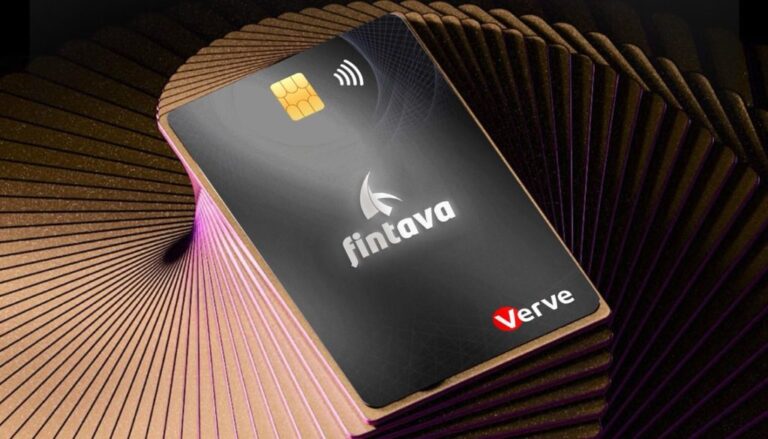Between 2020 and 2023, “banking the unbanked” became the go-to slogan for Nigerian fintechs during the country’s fintech boom. Many startups pledged to bring financial services to the 28.8 million unbanked adults in Nigeria—about 36% of the population. Yet, few extended their efforts beyond Lagos, the nation’s financial hub.
In 2022, Tobi Arowolo, Samuel Ojerinde, and Isaiah Tokunbo launched Fintava Pay, a Banking-as-a-Service (BaaS) platform designed to close this gap—specifically in Northern Nigeria, where financial exclusion is highest. Unlike conventional fintechs that build direct-to-consumer apps, Fintava Pay enables microfinance banks, cooperative societies, and agent networks to create custom financial products for their communities.
Why Northern Nigeria?
Northern Nigeria has the lowest financial inclusion rates in the country, with 38% of the North East and 47% of the North West financially excluded. Limited banking infrastructure, low digital literacy, and religious concerns around interest-based banking have made traditional banking inaccessible to millions.
“It’s not that banks don’t exist in these areas,” said Tobi Arowolo, CEO of Fintava Pay. “The problem is they are centralized in urban centers, while the majority of the rural population lacks the infrastructure or financial literacy to engage with digital banking.”
The Central Bank of Nigeria (CBN) reports that only 1,614 of Nigeria’s 5,000 commercial bank branches (32%) are located in Northern Nigeria. Instead of relying on traditional banks, residents often turn to super agents—individuals or businesses who facilitate banking services in remote areas.
How Fintava Pay is Bridging the Gap
1. White-Label Banking for Local Agents
Fintava Pay’s unique white-label banking solution allows super agents to open bank accounts for users, process transactions, and provide financial services under their own brand. This decentralized approach ensures that financial services reach those who need them most, using trusted local networks.
2. Banking in Local Languages & Without Smartphones
To accommodate low digital literacy rates, Fintava Pay customizes banking solutions in Hausa, the dominant language in Northern Nigeria. Many residents also lack smartphones, so the platform uses alternative verification methods:
- Three-family-member OTP authentication: To prevent fraud, OTPs are sent to three separate family members in different locations before transactions or card issuance.
- ATM cards for non-smartphone users: Users who lack smartphones receive ATM cards for cash withdrawals, ensuring they can still access funds.
3. Tackling Religious Concerns About Interest-Based Banking
Many Northern Nigerians avoid traditional banks due to their association with interest-based transactions, which conflict with Islamic finance principles. Fintava Pay circumvents this by working with super agent networks like BusyPay, which locals trust.
“There are people who refuse to open accounts with traditional banks,” said Samuel Ojerinde, co-founder of Fintava Pay. “But when they see a familiar face—a trusted local business or agent—they are more likely to engage with financial services.”
Real Impact: The BusyPay Success Story
In Kano, a super agent network called BusyPay partnered with Fintava Pay to launch its own custom banking platform. Within 24 hours of launching, BusyPay’s app:
Hit 1,000 downloads
Began onboarding previously unbanked users
“The founder of BusyPay approached us, saying, ‘If I had the technology, I could onboard thousands of people overnight,’” Ojerinde recounted.
Fraud Prevention & Security Measures
With low digital literacy comes a higher risk of fraud. Some users unknowingly expose sensitive information like Bank Verification Numbers (BVN), making them vulnerable to scams. To combat this, Fintava Pay:
Requires three separate phone numbers for verification
Implements strict onboarding requirements for agents
Hires ethical hackers to identify and patch system vulnerabilities
Expanding Beyond Nigeria
Fintava Pay’s success has attracted pan-African interest. The startup is currently working with a business in Zambia, where it plans to replicate its agent-led financial inclusion model.
“This isn’t just a Nigeria problem,” Ojerinde noted. “Many African markets face the same financial inclusion barriers.”
Although Fintava Pay is considering fundraising for expansion, its founders are cautious.
“We don’t want to raise just for the sake of it. We want to prove our model at scale first,” Ojerinde said.
How Fintava Pay Makes Money
Fintava Pay generates revenue through a mix of service fees, subscriptions, and transaction charges:
API Access Fees – Businesses pay to integrate Fintava Pay’s banking services into their platforms.
Subscription Plans – Monthly fees for businesses using its white-label banking solutions.
Transaction Charges – Cuts from wallet top-ups, transfers, bill payments, and ATM withdrawals.
Instant Settlement for Businesses – Unlike competitors, Fintava Pay ensures businesses can access their funds immediately instead of waiting 24 hours.
How Fintava Pay Stands Out
Unlike competitors like Bloc, Anchor, and Maplerad, which offer generic Banking-as-a-Service APIs, Fintava Pay’s focus is deep localization and financial inclusion:
- Localized Solutions: Banking services are tailored to fit Northern Nigeria’s cultural, linguistic, and technological landscape.
- Agent-Led Banking: Works through trusted local businesses, unlike Moniepoint and Opay, which operate agent-led banking but don’t offer custom fintech solutions.
- Instant Settlement & Lower Fees: Businesses using Fintava Pay’s API get faster access to funds and can negotiate lower transaction fees based on volume.
What’s Next?
Fintava Pay is staying true to its mission: focusing on underserved regions instead of competing in Lagos.
“You want to focus on other parts of the country where people are not focusing,” Ojerinde emphasized.
With its innovative approach to financial inclusion, security, and localization, Fintava Pay is proving that banking the unbanked isn’t just a tagline—it’s a transformative reality.


